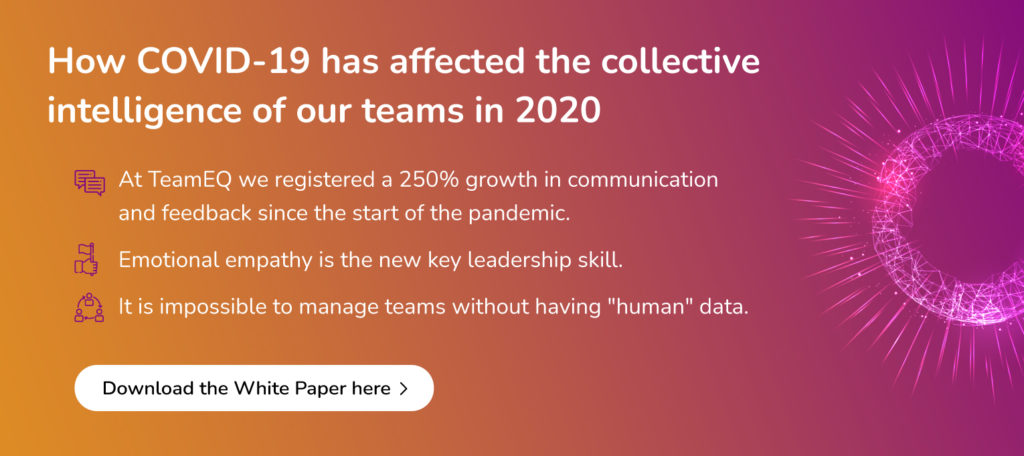How can we improve team performance through active listening?
We all know that feedback is a powerful tool to increase team performance. However, a research on feedback effectiveness conducted over 20 years ago by Kluger (Harvard Business Review) demonstrated that, in 38% of cases, performance after feedback was prone to decline.
Why was this happening, even with positive feedback? Because one-way feedback threatened how people saw themselves and above all, it signaled that the boss is in charge and that the boss is judgmental.
But, can a different approach to feedback prevent these consequences?
It was demonstrated that experiencing high quality (attentive, empathic, and non-judgmental) listening positively shapes speakers’ emotions and attitudes. An approach based on asking question and listening to the answers.
What happens when we do not offer quality listening?
In another experiment, 112 undergraduate students were paired together to serve as either a speaker or a listener. Half of the listeners were told to actively listen to their partner and the other half to be distracted from time to time: looking outside the window, answering their messages, picking up the phone… Results were clear: speakers paired with good listeners (versus those paired with distracted listeners) felt less anxious, more self-aware, and reported higher clarity about their attitudes on the topics.
TeamLeaders who actively listen to their Teammates and avoid distractions during their conversations (such as looking at their phones, glancing at the mailbox, etc.) promote Teams that are more self-aware, calm and clear about their tasks. Active listening makes an employee more relaxed, more self-aware about his or her strengths and weaknesses, and more willing to reflect in a non-defensive manner, what leads to a more cooperative team.
Leaders who listen well are perceived as people leaders, who generate more trust, encourage higher job satisfaction, and increase their team’s creativity.
How can you become a better listener?
Be fully present in the conversation. If you can’t, it’s better to postpone the conversation. Put aside your smartphone and laptop, and look at the speaker, even if they do not look back at you. The speaker will look at you occasionally to see that you’re still listening.
Do not interrupt. Resist the urge to interrupt before the speaker indicates that they are done for the moment.
Do not judge or evaluate. Active listening means switching off that internal voice that makes us jump into conclusions.
Do not impose your solutions. Ask open questions based on what you have heard and support your teammate to come up with their own suggestions. You will be amazed of the solutions that might come up. This will increase the creativity and sense of ownership in your team.
Remember: Good listening requires training, persistence, effort, and most importantly, the intention to become a good listener.
Thanks to TeamEQ, you have the possibility of periodically asking precise and effective questions to all your Teammates. Because of the transparency of the tool, your Teammates will feel secure about opening up and giving you personal feedback on each of the questions. After that, it’s your turn. Remember to carefully listen (in this case, read) each of the answers and act accordingly, whether it is by answering a comment on reacting to a negative tendency in a specific variable.
At the beginning active listening might seem a big effort but with training and persistence it will become part of your leadership style. Keep in mind all of its benefits: more cooperative teams, higher self-esteem among teammates, trust and job satisfaction.
TeamEQ is here to support you and your Team in your cultural transformation towards a healthier and more productive Team!
The above post is based on the article “The Power of Listening in Helping People Change” published by HBR. You can find the original article here.




